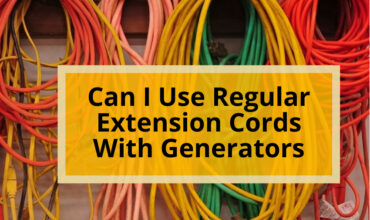In an era where energy plays a pivotal role in our daily lives, the significance of generators cannot be overstated. These powerhouses provide a reliable source of electricity when the grid fails, ensuring that our essential appliances and devices continue to function seamlessly.
However, beneath their robust exteriors lies a secret to their optimal performance and longevity – the right choice of fuel. This fuel guide aims to unravel the complexities surrounding this crucial decision, shedding light on the types of gas used, such as propane, gasoline, diesel, and ethanol-free options.
Each fuel option has its own set of advantages and disadvantages, and understanding these nuances is essential for generator owners. By delving into the world of generator fuel, we can empower ourselves to make informed choices that will not only enhance the efficiency of our generators but also contribute to a sustainable and harmonious energy landscape.
Types of gas used
The types of gas used by generators vary depending on the model and type, with options including propane, gasoline, diesel, and E85.
Propane is a common choice for generators as it offers stable storage and does not reduce in volume over time.
Gasoline generators are popular for home usage and backup services, although they have a high fuel consumption rate and require constant maintenance.
Diesel generators, on the other hand, are more efficient and have lower maintenance costs, making them a recommended option.
E85 engines use a specific type of gas called E85, which is a blend of ethanol and gasoline.
It is important to consider the octane rating of gas, as it can affect generator performance.
Gasoline generators perform well with high octane ratings, while diesel generators perform well with lower octane ratings.
It is advisable to use ethanol-free gas options such as E85 or gasoline with low ethanol content for generators.
Pros and cons of propane
Pros and cons of propane for generator usage depend on its availability, cost, and environmental impact.
Propane is widely available and can be easily purchased from various suppliers.
It has a longer shelf life compared to gasoline, making it a convenient choice for backup power.
Propane generators also tend to have lower maintenance requirements and longer lifespans.
In terms of cost, propane can be more expensive than gasoline, but it offers better fuel efficiency, which can offset the initial investment.
Additionally, propane produces fewer emissions compared to gasoline or diesel, making it a cleaner and more environmentally friendly option.
However, propane generators may have lower power output compared to gasoline or diesel generators, limiting their use for heavy-duty applications.
Overall, the choice of propane as a fuel for generators depends on individual needs and preferences.

Gasoline generators
Gasoline generators are commonly used for residential and small-scale power needs, with over 80% of portable generators in the United States running on gasoline. They offer convenience and affordability, making them a popular choice among homeowners. However, gasoline generators have some drawbacks as well. They have a high fuel consumption rate, requiring frequent refueling, and they need constant maintenance to ensure their optimal performance. Additionally, the use of gasoline with lower octane numbers can cause engine problems. Despite these limitations, gasoline generators remain a reliable option for providing power during emergencies or for recreational purposes.
Below is a table summarizing the pros and cons of gasoline generators:
| Pros | Cons |
|---|---|
| Convenient and affordable | High fuel consumption rate |
| Widely available | Constant maintenance required |
| Reliable power source | Engine problems with low octane gasoline |
Overall, gasoline generators are a practical choice for those seeking a reliable power source for their residential or small-scale needs.
Diesel generators
Diesel generators are known for their efficiency and lower maintenance costs compared to gasoline generators. They are highly favored for their ability to provide reliable power for extended periods of time.
Diesel fuel is recommended for its high horsepower per gallon and secure storage. These generators are designed to operate efficiently with lower octane ratings, making them a cost-effective choice. The combustion process in diesel generators is more efficient, resulting in higher fuel efficiency and reduced fuel consumption.
Additionally, diesel generators are less prone to spark plug fouling and require less frequent maintenance. This makes them a popular choice for commercial and industrial applications where continuous power supply is crucial.
Overall, diesel generators offer a reliable and efficient solution for those seeking a power source with lower maintenance requirements.
also read : The Ultimate Battle: Curved Claw Vs Straight Claw
Ethanol-free options
One alternative option for generators that eliminates concerns related to ethanol content is the use of ethanol-free gas. Ethanol-free gas, also known as pure gasoline, is a type of fuel that does not contain any ethanol. This is especially beneficial for those who own generators as ethanol can cause issues such as corrosion and engine damage.
Ethanol-free gas provides a more stable and reliable fuel source for generators, ensuring optimal performance and longevity. It can be purchased at certain gas stations and is a popular choice for those who want to avoid the potential problems associated with ethanol-blended fuels.
By using ethanol-free gas, generator owners can have peace of mind knowing that they are using a fuel that is specifically designed to meet the needs of their equipment.
Frequently Asked Questions
What are the advantages of using propane as a fuel for generators?
Propane offers several advantages as a fuel for generators. It is a common choice due to its stable volume during storage, making it convenient. Propane-powered generators also provide reliable and consistent power output.
Are there any safety concerns associated with using propane as a fuel for generators?
There are safety concerns associated with using propane as a fuel for generators. According to a study, propane-fueled generators are responsible for a significant number of carbon monoxide-related deaths and injuries each year.
How do gasoline generators compare to propane generators in terms of fuel efficiency?
Gasoline generators generally have a higher fuel consumption rate and require more maintenance compared to propane generators. However, the fuel efficiency of a generator depends on various factors, including its model, type, and usage conditions.
What are the main benefits of using diesel as a fuel for generators?
The main benefits of using diesel as a fuel for generators include higher efficiency, lower maintenance costs, and secure storage. Diesel generators have a higher horsepower per gallon and are recommended for their reliability and durability.
Can ethanol-free gas be used in all types of generators, or are there specific models that require it?
Ethanol-free gas can be used in all types of generators, but it is not necessarily required for all models. Some generators may be designed to run on specific types of gas, so it is important to refer to the manufacturer’s specifications for fuel requirements.






